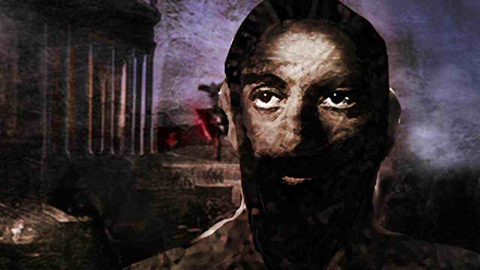
How does a sickly, poorly spoken, religious man become one of the most influential figures in Western history? An outsider without crown or sword who decided how we should make love and war and believe in God? If you asked Paul the Apostle (A.D. 5-62), he would give only one explanation: his conversion in A.D. 33 when he was made an Apostle of Christ, a crisis turning point that thrust him into a hornet's nest of Jewish controversy and set him on a collision course with the Roman Empire.
Originally an opponent of the early Jesus movement, Paul never met Jesus until his famous resurrection vision, an event challenged by some of the Apostles, including Jesus' brother James and Peter. But after his vision, instead of Christ's message of reform to Israel, Paul preached a new gospel that went beyond law or circumcision for Gentiles. At first Paul found some agreement with the Jerusalem Apostles, whom he mockingly called pillars, but his support quickly eroded. After a major confrontation at the Antioch church, Paul left the synagogue, forced to seek a new mission community.
As Apostle to the Gentiles, Paul worked as a leather maker in poverty-plagued towns that were rife with infirmity, oppression, and death. In these forsaken places he proclaimed the coming, a prophetic warning permeating his every word. His message caused believers in mystery religions and followers of the Imperial Cult to shudder before the monotheistic God of Israel who would soon return to judge the living and the dead. For Paul, Jesus was the only Divine King, the one who would transform Caesar, Rome's Son of God, and his military utopia into a just kingdom.
Paul found success in the European colonies of Philippi, Corinth, and Thessalonica, populated by retired soldiers, artisans, and slaves. He developed a familiar language that could communicate Jewish ideas through Greco-Roman rhetoric. According to Paul, it was the end of days, and as promised in scripture, God was opening the doors to the Gentiles. However, most of Paul's successes were only short lived.
After a mission to Ephesus, in Asia Minor, which threatened the thriving idol-making industry there, Paul received bad news from Europe. Jewish Christian opponents had gained a following, and Paul's self-appointed authority and law-free gospel were being brought into question. Around the years A.D. 50-56, Paul was middle-aged. It became difficult for him to travel, so he wrote epistles. These written pleas bear witness to his churches, turned factious, on the verge of collapse. Jewish Christian opponents had gained a following, and Paul's self-appointed authority and law-free gospel were brought into question. This Jewish infighting, at times, also attracted Roman authorities.
After the breakdown in his European churches (A.D. 56-58) Paul penned his most famous epistle, the Letter to the Romans, proclaiming his final mission to Rome and then to Spain, the end of the known world. As a final gesture of unity before he left, Paul, at great risk to his life, returned to James in Jerusalem with a Gentile collection. James, as liaison, suggested he make peace with his brethren in the Temple. But when Paul arrived, he was falsely accused of traveling with a Gentile in violation of the Temple; he was then attacked and almost killed by a mob.
With the threat of assassination looming, Paul was whisked away by a Praetorian Guard, taken to Caesarea and eventually to Rome, probably under Nero, and kept under house arrest until his trial. Looking back, one can imagine Paul in that dark cell pondering his relentless conflicts with his Jewish brethren, his divided churches (which missed his message of unity), and a conquering Messiah who never returned.
Paul, a contemporary of Jesus, wrote letters prior to the destruction of Jerusalem in A.D. 66-70. His correspondence remains our only porthole into the first-century conflicts of a Jewish movement and how it branched out into a Greek-speaking world before Israel was trampled under Roman occupation. In a final act of historical irony, Paul's message of a crucified Jewish Messiah raised from the dead and returning to be king would eventually consume that very Empire.
